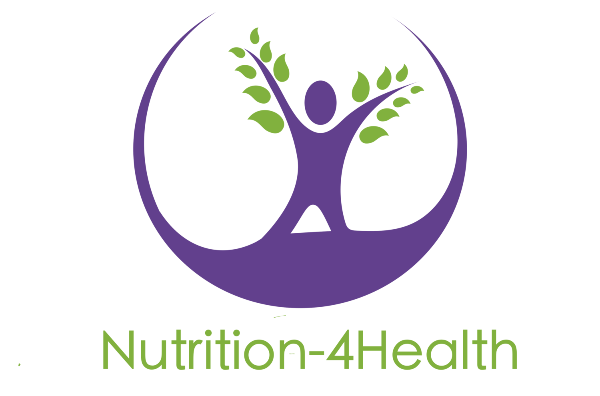What To Do If You Are a Stress Eater?
These are challenging times for many of us. We are having to live our lives in a completely different way from what we considered previously „normal”. There are some ideas on how to manage stress eating and what to eat (and what to avoid) when we are spending more time at home. It’s important to differentiate stress eating from disordered eating. If you feel that you have disordered eating tendencies, please feel free to contact me for more information.
1. Stay hydrated
Water is still underestimated when it comes to weight reduction and overeating and even brain health!
Research shows that water, an essential nutrient, may deserve greater focus in weight management research and stress eating. While stressed and being stuck at home, maintaining proper hydration is crucial not only for overall health but also to prevent stress-related overeating.
People might very often eat when they are thirsty. Dehydration can lead to problems with logical thought ( not surprised if water accounts for 75% of brain mass), inability to move as expected, alterations in mood and eating habits. When you’re feeling hungry, take a moment and drink a full glass of lukewarm water in the 30 minutes before you enjoy your meal.
For better digestion, add a teaspoon of organic apple cider vinegar and watch how quickly you fill-up. To prevent dehydration, add a few slices of fresh fruits, vegetables and herbs to your water, which may help you drink more water throughout the day without adding sugar and unnecessary calories to your diet.
2. Get an adequate amount of protein.
Current evidence indicates that protein-induced energy expenditure and satiety contribute to weight control. If the food you are eating is high in carbohydrates and low in proteins you are not filling fuller for longer. Getting enough protein reduces late-night snacking and sugar cravings reducing appetite and hunger levels.
Which foods have protein and what to eat?
Here is a list of 8 delicious foods and food groups that are high in protein.
Eggs
Nuts (almonds, pistachios, cashew)
Seeds (pumpkin, flax seeds, sunflower, chia seeds)
Greek yoghurt
Fish (salmon, tuna, mackerel, sardines)
Legumes (lentils, soybeans, kidney beans, chickpeas)
Some veggies (watercress, broccoli, alfalfa sprouts, spinach, asparagus)
Some grains (quinoa, amaranth, oats)
The more often you have foods that are dense in protein (and healthy fats), the more quickly you feel full.
Are you looking for healthy snacks that are easy to make at home and enjoy when you are on the go?
3. Monitor food frequency
For quite some time, the common advice was that if you ate often, that you would magically allow yourself to lose weight. Well, this can only be a partial truth.
So, eating ten times a day or having cravings out of control won’t help you to achieve your ideal body weight.
If your hunger and cravings are out of control, try with how often you eat and structure the diet by setting specific times for meals each day e.g every 4 hours, not often. It may help to retrain your brain and set up proper communication „now, it’s time to eat again”.
Let’s experiment with frequent meals as it may help you to curb stress eating and control your weight. On top of that, reflect on some of the other suggestions just discussed, like getting more proteins and drinking more water.
4. Reduce caffeine intake
Caffeine is a bitter substance that occurs naturally in more than 60 plants, including coffee beans, tea leaves and cacao pods (used to make chocolate). For many people, a few cups of black tea or coffee may even bring some benefits or is completely innocent.
However, caffeine passes into the bloodstream from the stomach and small intestines and stimulates the central nervous system (brain and spinal cord) making us more alert and awake, and overtime fatigue and having difficulties to concentrate.
Caffeine can trigger us to start drinking and eating more as it raises our blood sugar level, so we can get cravings even from a single cup of coffee or tea in the morning. Even if you are not adding sugar to your coffee, the effect is the same: there is a stress response in your body!
Cut down slowly on the amount of caffeine in your diet as you may develop even flu-like „caffeine withdrawal”. Slowly change from regular coffee to decaf, swap black teas with herbal and give your body 3 weeks to adjust and see some positive results and reduced cravings.
5. Get enough sleep
Did you know that sleep can affect your blood sugar levels, and your blood glucose level can also affect your sleep? Researchers show that even one poor night sleep can make a huge blood sugar imbalance leading to insulin resistance and diabetic.
If you don’t prioritise sleep, your blood sugar will go all over the place.
As a result, your body craves foods including sugary food ...that will raise your blood sugar again and increase your energy, making you feel guilty and heavier at the end.
So my advice is to get enough sleep to reduce cravings and stress eating.
I hope you find this information helpful. Your body and mind will tell you if certain things aren’t resonating with you. So listen to your body and trust your gut feeling.
Also, if you or your family members struggle with stress eating habits, don't hesitate to contact me for a free 30 minutes consultation.
“Cravings are not about FOOD. Cravings are about STRESS”





